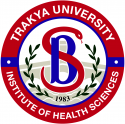Home Page » Health Physics
S
Health Physics
“Medical Physics" is a branch of science related to the use of methods and concepts of physics and mathematics in diagnosing and treating diseases in practice.
The medical physicist is responsible for applying radiation sources in medicine, ensuring the radiation safety of the patient, and obtaining the best results with a minor dose in the diagnostic area. In treating radiation sources, the medical physicist is responsible for making the necessary patient treatment and planning, dose measurements, and calculations to protect the healthy tissues and organs and to treat the patient most accurately and reliably. During these activities, ensuring the radiation safety of the employees, the public, and the environment, implementing new systems, and developing new methods are also within the scope of the job description. For this purpose, a medical physicist is a person who has a bachelor's degree in physics, physics engineering, and nuclear power engineering, followed by a master's degree in medical physics.
The Department of Medical Physics has provided graduate and doctorate education in our university since the 2008-2009 academic year. Since then, our department has been one of the important centers that supply the need for specialist medical physicists in our country. In our department, specialist medical physicists are trained who can work all over the world, thanks to a wide range of state-of-the-art diagnostic, treatment, and quality control devices in our hospital.
Public and private hospitals with radiation oncology, nuclear medicine, or radio-diagnostic departments need well-trained specialist medical physicists. Students who will graduate from our department can work as specialist medical physicists in branches of medicine related to ionizing radiation, such as radiotherapy centers, nuclear medicine centers, radio-diagnostic clinics. In addition, trained and well-trained specialist medical physicists will perform essential tasks in the most accurate implementation of the planned treatment, quality safety in devices, quality control and dosimetry operations, and overall radiation safety.
The medical physicist is responsible for applying radiation sources in medicine, ensuring the radiation safety of the patient, and obtaining the best results with a minor dose in the diagnostic area. In treating radiation sources, the medical physicist is responsible for making the necessary patient treatment and planning, dose measurements, and calculations to protect the healthy tissues and organs and to treat the patient most accurately and reliably. During these activities, ensuring the radiation safety of the employees, the public, and the environment, implementing new systems, and developing new methods are also within the scope of the job description. For this purpose, a medical physicist is a person who has a bachelor's degree in physics, physics engineering, and nuclear power engineering, followed by a master's degree in medical physics.
The Department of Medical Physics has provided graduate and doctorate education in our university since the 2008-2009 academic year. Since then, our department has been one of the important centers that supply the need for specialist medical physicists in our country. In our department, specialist medical physicists are trained who can work all over the world, thanks to a wide range of state-of-the-art diagnostic, treatment, and quality control devices in our hospital.
Public and private hospitals with radiation oncology, nuclear medicine, or radio-diagnostic departments need well-trained specialist medical physicists. Students who will graduate from our department can work as specialist medical physicists in branches of medicine related to ionizing radiation, such as radiotherapy centers, nuclear medicine centers, radio-diagnostic clinics. In addition, trained and well-trained specialist medical physicists will perform essential tasks in the most accurate implementation of the planned treatment, quality safety in devices, quality control and dosimetry operations, and overall radiation safety.

|
|
||||||||||
|
|
|
||||||||||

|
|
||||||||

|
|
||||||||

|
|
||||||||||

|
|
||||||||||

|
|
||||||||

|
|
||||||||||

|
|
||||||||
|
|
|
||||||||||


